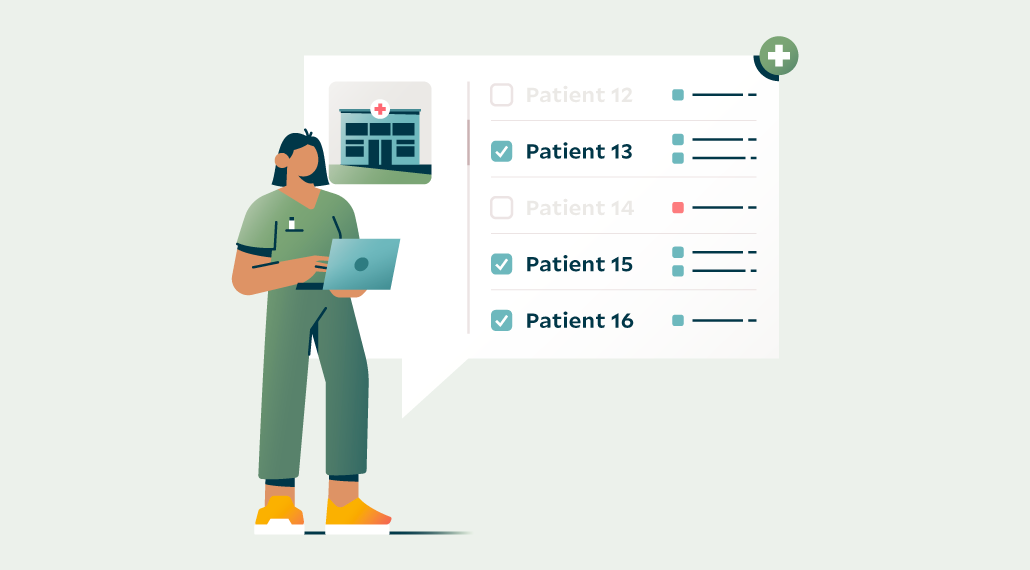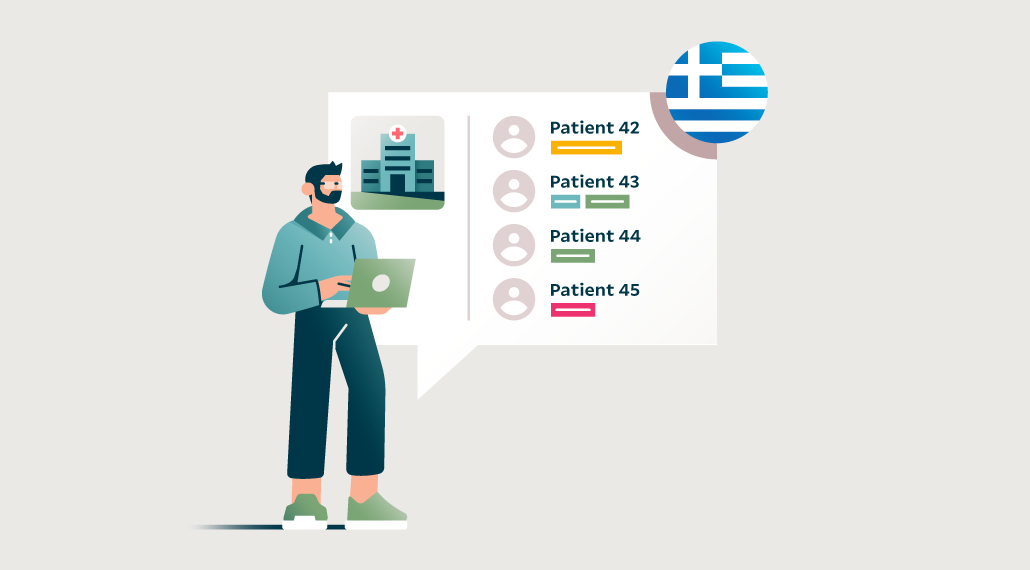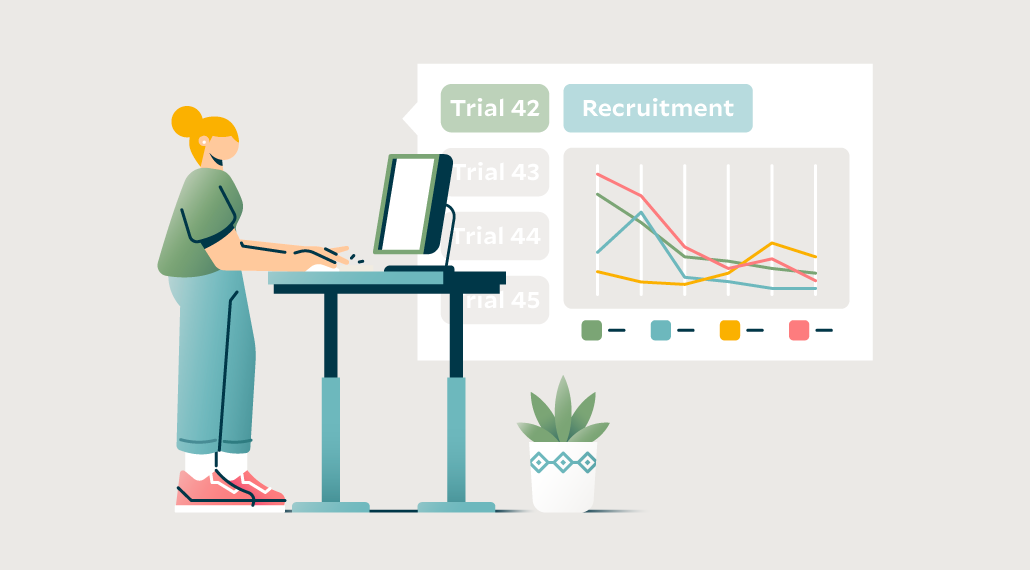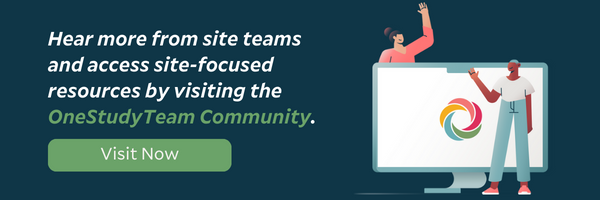October 15th, 2024
Tips for Patient Recruitment, Engagement, and Trial Budgeting from a TASK Central Site Manager
By OneStudyTeam

It’s no surprise that clinical trial sites stay busy. “A typical day at TASK Central, while conducting vaccine trials, is extremely busy,” Carmen Kleinhans, TASK site manager in Cape Town, South Africa. “We see approximately 40 to 55 participants daily, with visits ranging from screening and randomization to follow-up appointments across various studies.”
The TASK team focuses on commercial studies and has diversified into various therapeutic areas, including dermatology, respiratory, and vaccine trials, which cover diseases such as TB, Covid-19, influenza, and RSV prevention in adults and adolescents, as well as cardiac prevention studies.
Regardless of study focus or workload, the team loves having hands-on experience with participants. “We thrive on the unpredictability of site work,” Kleinhans said. “The ever-changing circumstances keep us engaged, and we appreciate the daily challenges that test our adaptability.”
Keep reading to learn about five clinical trial challenges the TASK team regularly encounters – and how they proactively address those challenges.
Challenge 1: Ensuring adequate enrollment of participants.
Kleinhans: “We develop targeted outreach campaigns that resonate with the specific demographics we aim to recruit. We collaborate with community organizations and patient advocacy groups to reach potential participants more effectively. Additionally, we involve the Community Engagement Board to assist with outreaches and community work to reach the community.”
Challenge 2: Keeping patients engaged throughout the study.
Kleinhans: “We maintain regular communication with participants throughout the trial. We use newsletters, updates, and personalized messages to keep them informed and engaged, to allow information sharing. We offer incentives, such as transportation, access to Wi-Fi at all sites, and data/airtime to stay in contact with the site. We also provide compensation for time, to minimize dropout rates.”

Challenge 3: Balancing the financial demands of conducting thorough and comprehensive research while staying within budgetary limits.
Kleinhans: “We focus our budget on the most critical aspects of the study that directly impact its success, such as participant engagement and data quality. We collaborate with academic institutions, government bodies, or industry partners to share costs and resources. And we seek grants or alternative funding sources to supplement our income/budget.”
Challenge 4: Integrating technology, with participants adopting and effectively using new technologies such as electronic diaries.
Kleinhans: “We provide thorough training sessions for participants and staff on how to use new technologies like electronic diaries. We offer ongoing support to our staff through help desks or dedicated contact points to assist with any issues that arise. Our IT team selects technology solutions that are intuitive and user-friendly, and they conduct pilot tests to identify any usability issues before full implementation. They also find the most effective internet solutions so that we are able to provide the best possible service to sponsors. We ensure that participants have access to reliable internet or provide alternative solutions, such as offline data entry options or providing mobile hotspots.”
Challenge 5: Recruiting as many patients as possible, in spite of trial limitations.
Kleinhans: “While the desire to enroll as many participants as possible is understandable, it's crucial to strictly adhere to trial guidelines and regulatory requirements to ensure the study’s validity and safety. We work closely with sponsors and regulatory bodies to understand and optimize enrollment criteria within the allowable guidelines. We consider advocating for broader criteria if the trial could significantly benefit participants, while still ensuring the study’s integrity. We ensure that the recruitment process is inclusive and non-discriminatory, giving equal opportunities to all eligible participants, regardless of age, sex, or race. And we utilize outreach strategies that reach diverse populations to fulfill enrollment targets and contribute to more representative study results.”
While working through patient recruitment and enrollment, the TASK team uses StudyTeam to collaborate with specific sponsors.
Kleinhans: “This platform is essential for tracking various stages of the study process, including pre-screening, screenings, randomizations, and follow-up visits. One of the key features of StudyTeam is that it allows sponsors to access the information they need to monitor the study's progress while ensuring that personal data remains confidential. For the site staff, StudyTeam offers a streamlined way to manage and track potential screenings, actual screenings, and randomizations. This centralized tracking system not only enhances the efficiency of our operations but also provides valuable data for operational meetings. The statistics generated from StudyTeam are regularly used to inform all staff of the progress of our studies.”
With these tactics in place, the TASK team finds trial efficiency and success the most rewarding part of the job.
Kleinhans: “My favorite part of my job is being able to provide the necessary guidance and support to ensure that our clinical trials run smoothly and successfully. I take great pride in contributing to the advancement of healthcare by helping bring new treatments to market safely and efficiently. The satisfaction of knowing that our work is providing better healthcare to our community is incredibly fulfilling.”
Want to share your experience with StudyTeam for Sites? Contact us here.
Related Posts

How Does a Trial Manager in Greece Improve Clinical Trial Operations with StudyTeam®?
Dimitris Tziogas, local trial manager at a biotechnology company in ...
Read More
How to Address Key Clinical Trial Challenges, According to Clinresco Centres in South Africa
There’s no single solution to overcoming a research site’s specific ...
Read More
3 Clinical Trial Billing Challenges Research Sites Solve with StudyTeam
Challenge 1: Complicated coverage analysis Challenge 2: Tedious budgeting ...
Read More

.png?width=64&name=OST%20Transparent%20(1).png)